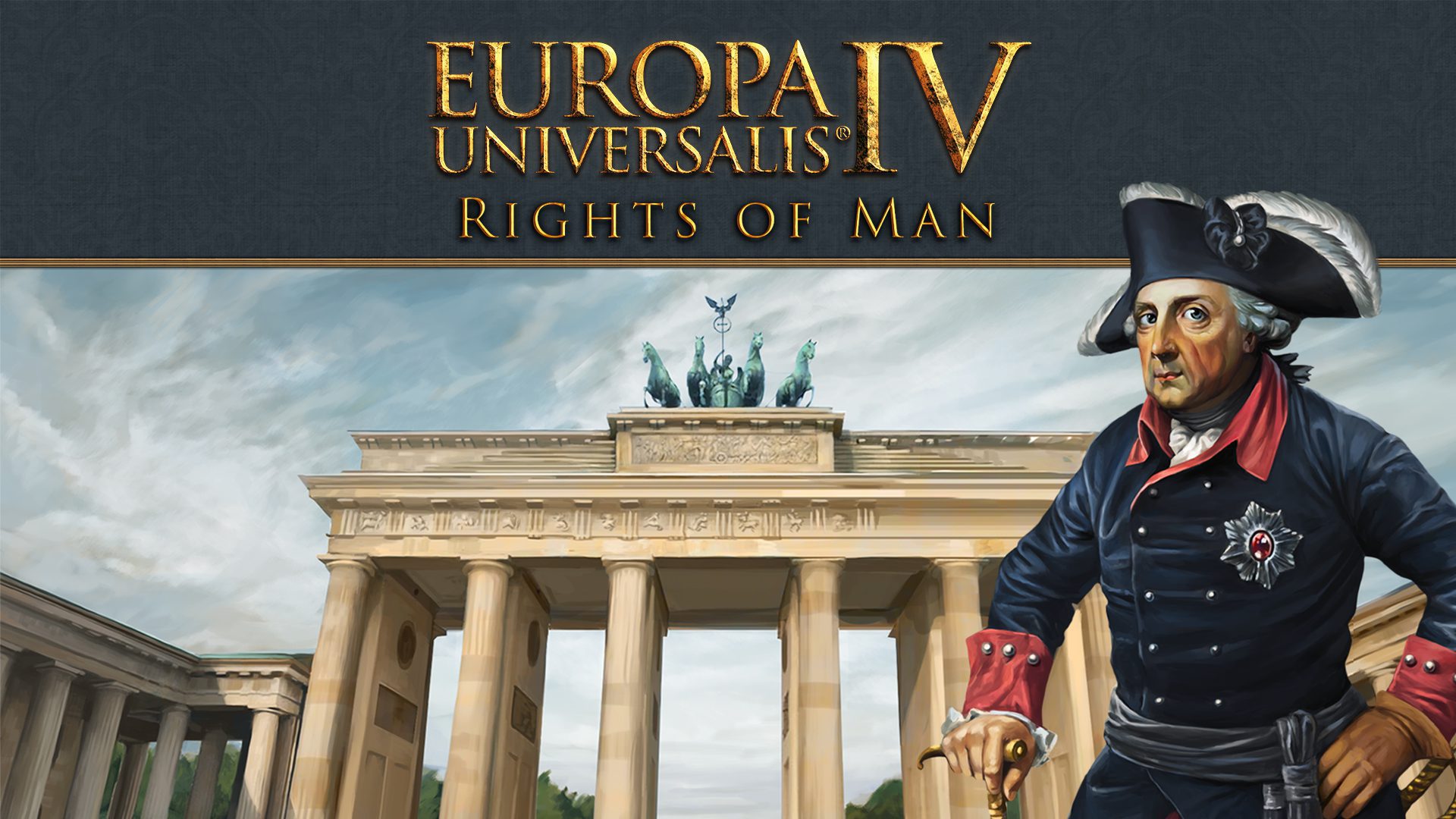Key Highlights
-
This blog explores the impact of the “Rights of Man” expansion on gameplay in Europa Universalis IV.
-
We will uncover new features, including ruler personalities, diplomatic options for Great Powers, and the influence of institutions.
-
Discover strategic insights into managing Great Powers, navigating technological advancements, and understanding cultural, religious, and English dynamics in the game.
-
Learn how this expansion enriches the Europa Universalis IV experience by adding depth and historical immersion.
-
Whether you’re a seasoned emperor or a newcomer to the game, this blog provides valuable insights into mastering the Rights of Man expansion.
-
Prepare to rewrite history as you delve into a world shaped by enlightened ideas, revolutionary fervor, and the pursuit of liberty in Europa Universalis IV: Rights of Man. (89 words)
Introduction
In the world of Europa Universalis IV, the “Rights of Man” expansion adds exciting new game mechanics. This is a time when ideas of revolution fill the air. The Enlightenment is pushing against the old ways, and the fate of countries relies on a fragile balance of power. This blog will help you understand the changes brought by “Rights of Man.” We will look closely at its features, see how they affect the game, and help you develop smart strategies to shape your own future during this time of change and new ideas.
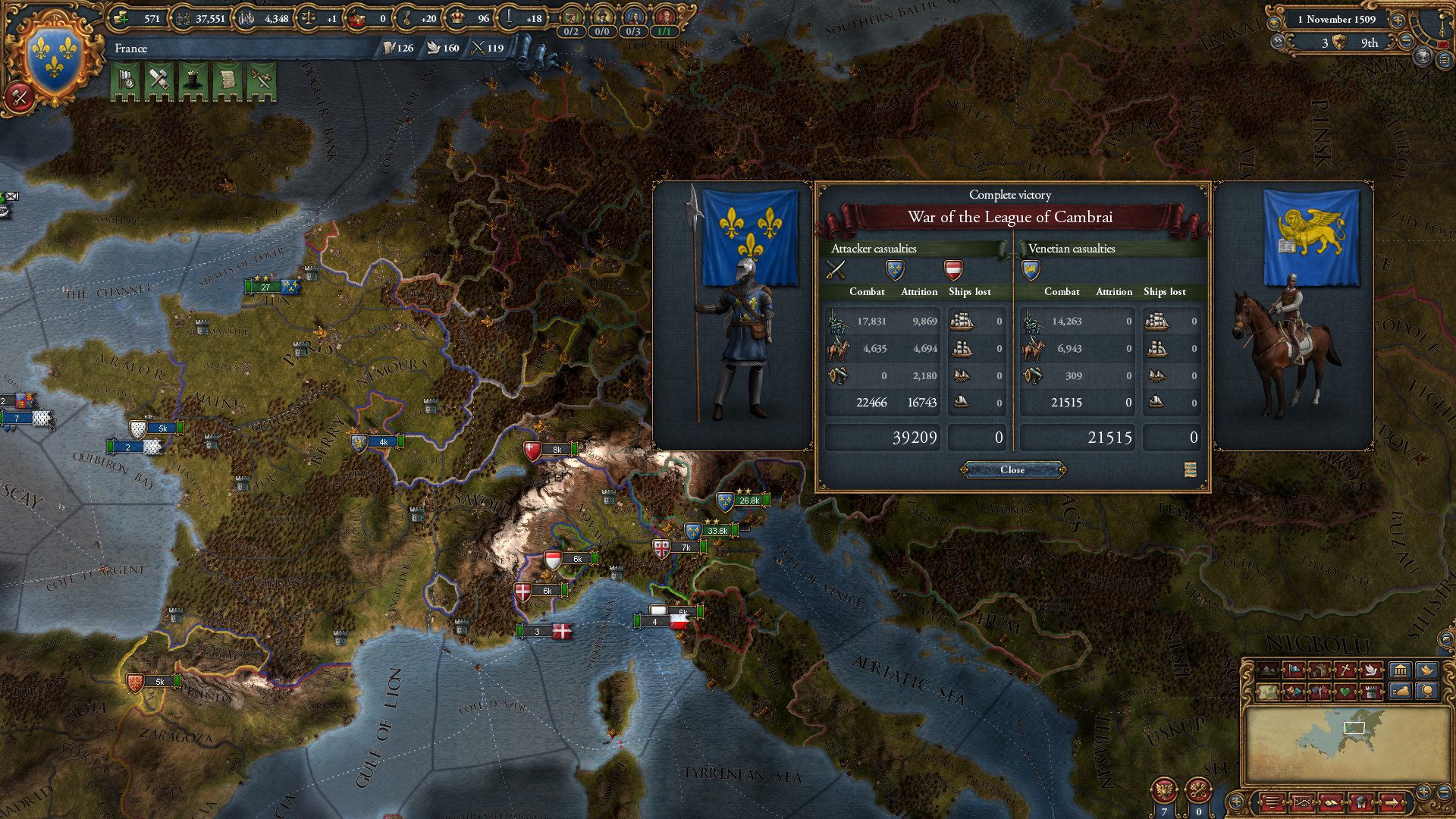
Overview of Europa Universalis IV: Rights of Man
The “Rights of Man” expansion gets its name from the chaotic time of the late 18th century. It takes ideas from the events that sparked revolutions worldwide, including North America. This includes the excitement that led to the French Revolution and the high goals stated in the Declaration of Independence and the Declaration of the Rights of Man and of the Citizen. This expansion wants players to explore a world changed by new thinking. It is not just about copying real events; it aims to show the spirit of that time through interesting gameplay.
“Rights of Man” offers much more than a simple look into history. It brings real energy to the game by adding features that change how nations meet, grow, and thrive. Whether we see great powers gaining new diplomatic power or the surprising traits of rulers, this expansion makes sure that finding power comes with fresh challenges and chances. It mirrors the unpredictable spirit of the time it represents.
Key Features and Enhancements
At the center of the “Rights of Man” expansion are key features that add excitement to the Europa Universalis IV game. New technologies, like those from the Age of Reason, are more than simple updates; they can change the game. These advancements can help nations rise above their competitors or fall behind. Picture a time when the printing press not only raises literacy but also triggers big religious changes, challenging the Church’s power and altering Europe’s faith. This is the kind of significant impact “Rights of Man” offers.
In addition, “national personalities” create fresh unpredictability in the game. Rulers are not just basic leaders; they are unique characters with ambitions, flaws, and quirks. One might be a smart military leader, a savvy diplomat, or a passionate religious figure who leads their nation into expensive wars. This chance element adds a thrilling uncertainty to each campaign. Will your ruler be a great leader who brings success, or a reckless tyrant who causes ruin?
Lastly, “Rights of Man” brings in the idea of “Great Powers.” These are strong nations that shape the world’s order. They are not just countries with large armies but are influential in diplomacy, guiding smaller nations and controlling alliances. Managing these Great Powers, whether you want to join them or resist their power, plays a vital role in the game.
The Significance of the Rights of Man Expansion
The “Rights of Man” expansion is important not just for its fun gameplay but also for what it represents. It reminds us that seeking human rights, a key idea from the Enlightenment, is an ongoing struggle for the enjoyment of these essential rights. This journey has many challenges, like fighting for political rights and against oppression and unfairness. Even though the expansion happens in the past, it makes us think about how the values in the Declaration of the Rights of Man still affect our world today. The game serves as a way to explore power struggles and the lasting importance of these basic rights.
Moreover, “Rights of Man” shows how important institutions are to social growth. Schools, humanist ideas, and legal systems based on the virtue of the law have been crucial in shaping the world we live in. The expansion highlights how the aim of every political association is to preserve natural rights for all members of society, and these institutions can guide a nation’s path and connect various political, social, and cultural elements. By playing, people can see how these parts come together to determine the fate of nations.
In short, “Rights of Man” goes beyond just a game. It gets players to think about human nature and history more deeply, specifically the rights of every man. It invites us to look at the past not just as events but as a story of ideas, groups, and brave people who wanted to change everything and create a better world.
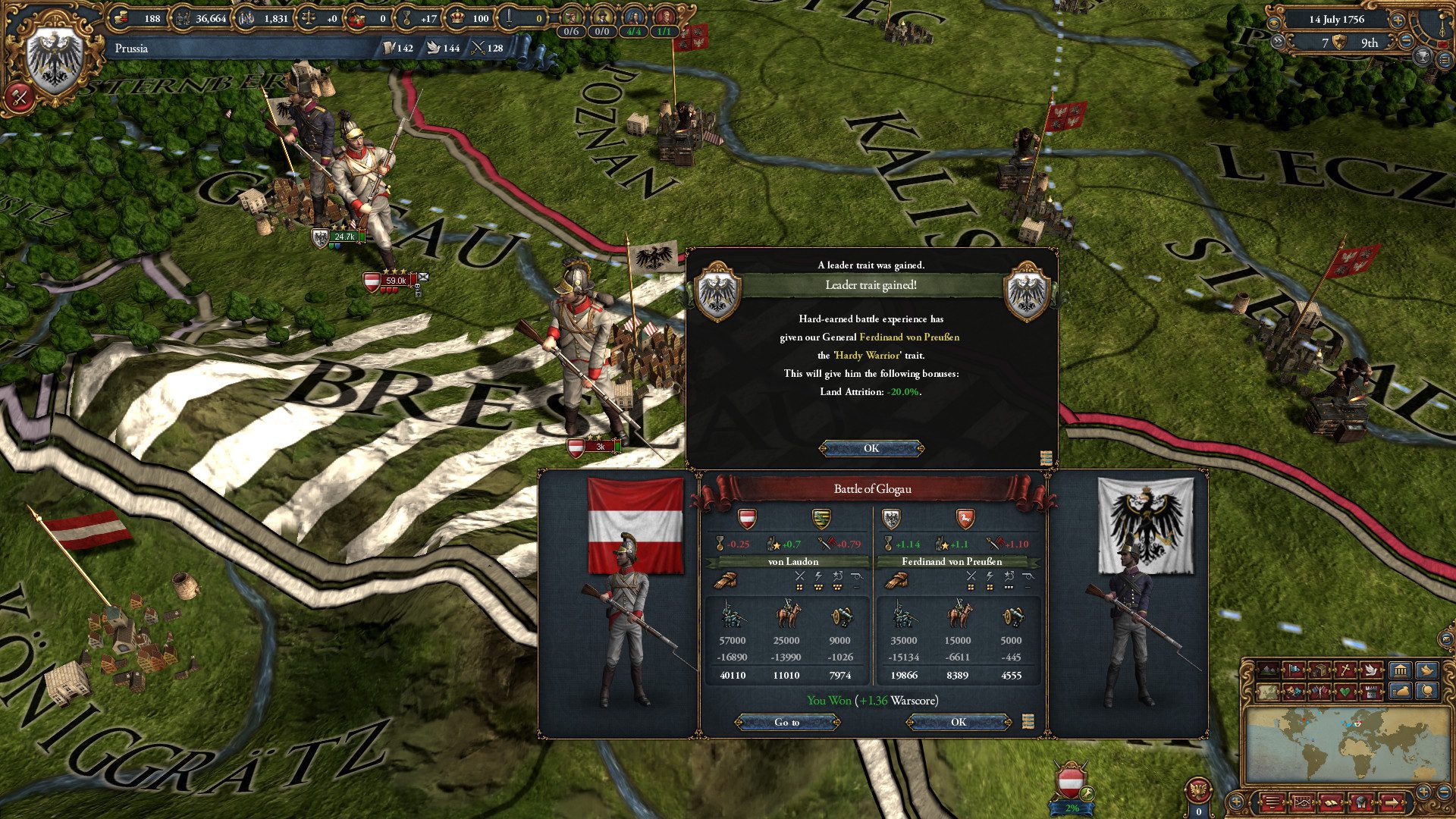
Deep Dive into the Gameplay Mechanics
Let’s look closely at the key ideas and unique gameplay features in “Rights of Man.” We will see how these features change how you play the game, especially in areas like diplomacy, warfare, and building nations.
You will notice that small changes, like adding leader personalities or updating diplomacy for major powers, can greatly affect the game. These changes mix up the gameplay and ask players to think strategically in new ways.
New Diplomatic Options and Their Impact
One big change from “Rights of Man” is that Great Powers now have more diplomatic choices. These choices are not just about declaring war or making alliances. They allow powerful nations to influence others in more careful and clever ways, while respecting each nation’s sovereign right. The system of government, including the new constitution, is back in focus. This includes the separation of powers and finding a balance between individual liberty and public order.
For example, imagine pressuring a smaller country to end its support for a rival nation without any military action. Think about stepping in to mediate or influence a conflict between two small nations, acting like a peacekeeper or even an aggressor, based on your goals. These new diplomatic strategies add complexity to international relations, making it easier for nations to play their cards wisely and move strategically.
However, using these diplomatic tools comes with risks. Great Powers are closely watched. If they misuse their power, there can be serious foreign policy consequences. Other Great Powers will take note and might step in if they feel the balance of power is in danger.
Understanding Personalities of Historical Figures
Another big change in the “Rights of Man” expansion is the addition of ruler personalities. These are inspired by real historical figures like Thomas Paine, who was passionate about revolution, and Edmund Burke, who strongly supported tradition and the nobility. Each ruler has their own traits, strengths, and weaknesses, including their view on hereditary rights. For example, think of a leader who channels Paine’s “Common Sense,” inspiring people to embrace revolutionary ideas. On the other hand, a ruler shaped by Burke would be careful and focused on keeping things the same. These personalities are important since they affect how the game is played.
For instance, a ruler with a fighting personality might boost army morale or siege success, making them great conquerors but not necessarily good at diplomacy or trade. Meanwhile, a ruler who is skilled in dealing with others could make good alliances and treaties, but may find it hard to lead during war. Knowing your ruler’s strengths and weaknesses is key to making smart choices and improving your chances of winning.
The best part of this system is that it is unpredictable. Just like in real history, rulers’ personalities can change over time, adding suspense to each game. Will your kind queen lose her mind later on, putting your kingdom at risk from rivals? Or will your young king become a clever leader, taking your nation to new levels?
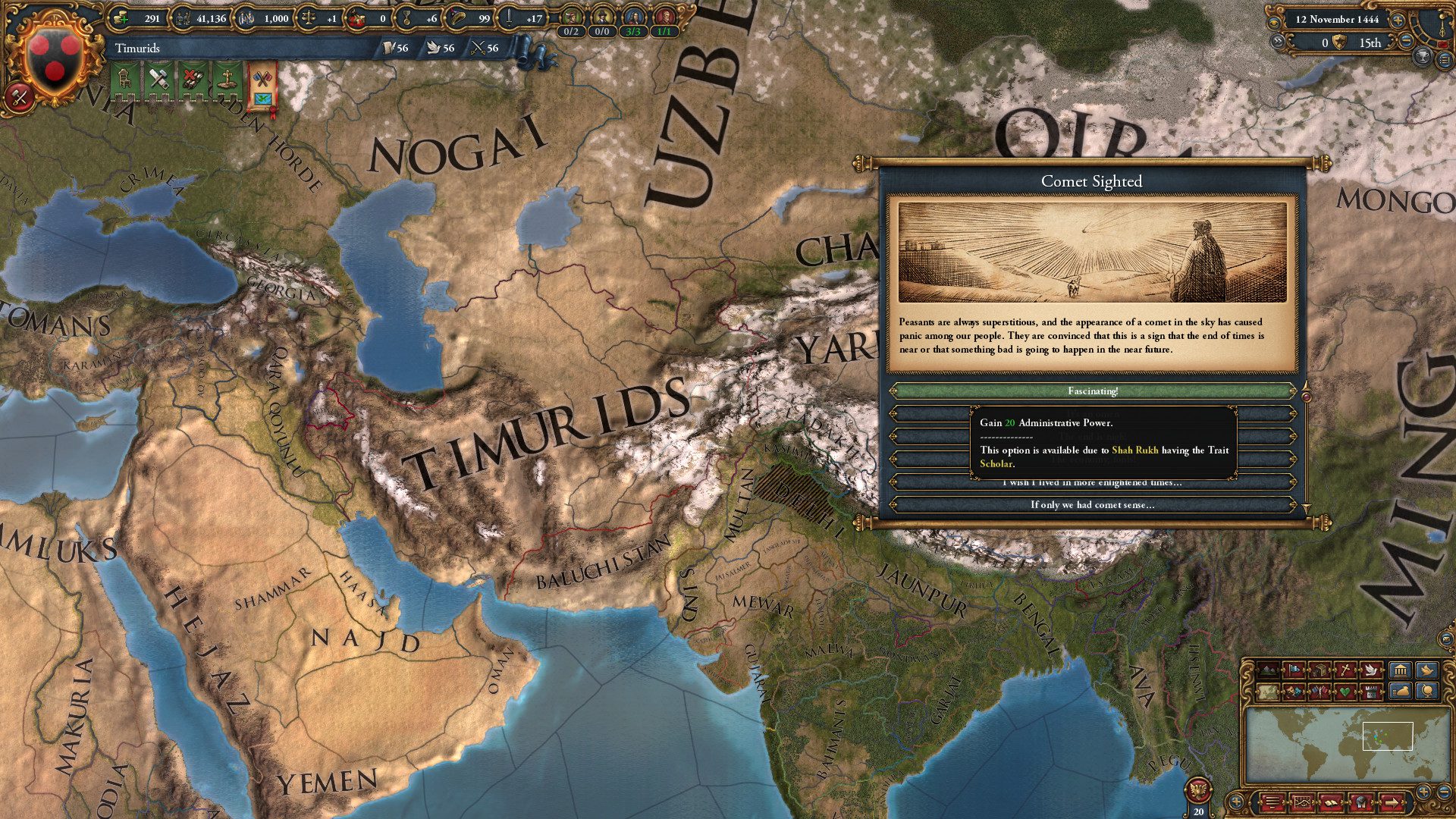
The Role of Great Powers in the Game
In the game of Europa Universalis IV, Great Powers are the leading nations. They have a lot of control over history. These nations have large armies and manage huge empires. They decide how countries interact with each other. The “Rights of Man” expansion highlights their role by adding new features that show how they can influence the fate of other nations.
To win in the game, you need to know how to deal with these Great Powers. You can try to win their support, challenge them, or handle difficult diplomatic situations. Let’s look at the best strategies to do well in a world ruled by these powerful nations.
Strategies for Managing Great Powers
-
Managing great powers in “Rights of Man” needs a careful mix of diplomacy, military strength, and smart planning.
-
Smaller nations often find themselves stuck between the larger countries. They must choose their friends wisely. They need to move carefully to avoid being used in a bigger power game.
-
Mastering diplomacy is very important.
-
It’s key to have good relations with strong neighbors and form alliances with those who share your goals.
-
You’re also required to handle how your rivals see your strength if you want to survive.
-
However, just diplomacy can only do so much.
-
It’s important to have a strong military, even if you can’t match the huge size of a Great Power’s forces.
-
A prepared army, strategically placed defenses, and a strong navy can help stop attacks from ambitious neighbors. This also gives you time to create alliances and get support from other Great Powers that want to keep balance.
-
Additionally, knowing what each Great Power wants is crucial.
-
Some might want to expand their territory, while others focus on economic control or religious issues.
-
By figuring out their goals, you can expect threats, find possible alliances, and manage the tricky world of international relations to your benefit.
The Influence of Great Powers on Global Politics
The effects of Great Powers reach well beyond their own lands. They affect political situations, cause conflicts, and change history. A great example is the French Revolution and the American Revolution. Its ideas about the people’s power, shown in the National Assembly and the idea of the “expression of the general will,” caused strong reactions all over Europe. This led to both strong support and fierce opposition from existing powers.
The “Rights of Man” shows how actions from Great Powers can lead to big changes, including the implications of hereditary succession. A small issue between two Great Powers might grow into a large conflict, bringing in smaller countries and changing the political layout, including the authority of the Crown. Also, the choices made by these powers on new technology, religious ideas, or economic methods can greatly affect the growth and success of other nations.
To play this game well, one needs to truly understand these complex power plays. If you want to be in charge, you have to predict how Great Powers will act, figure out the impact of those actions, and change your plans as needed. Whether you decide to join forces with these strong players, keep your distance, or even try to compete with them, knowing their influence on global politics is key for creating a world that fits your goals.
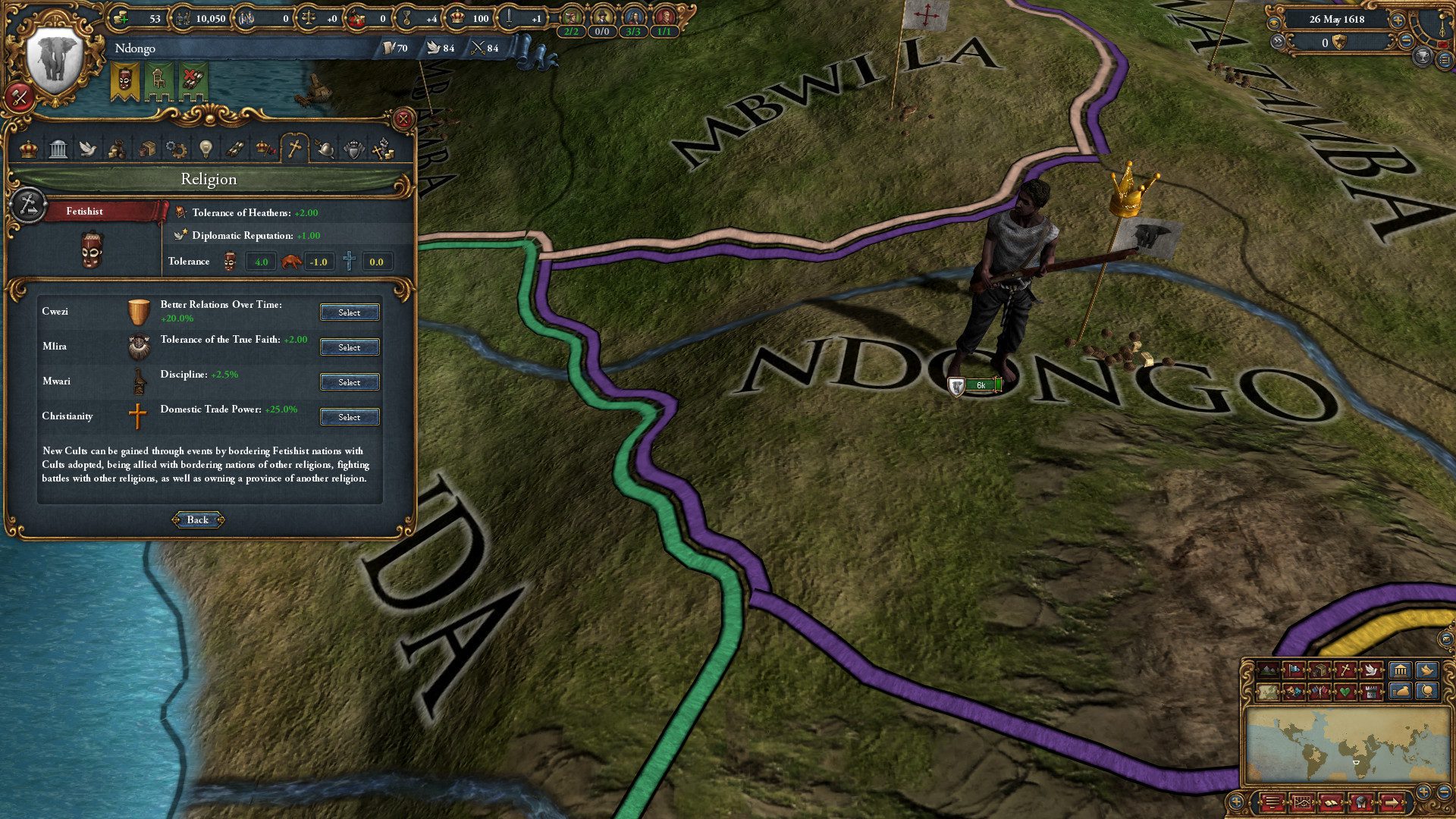
Technological Advancements and Their Effects
Technological growth, sparked by curiosity and new ideas during the Age of Reason, changed history in the early modern era. It wasn’t just about better weapons or ships, though those were very important. These changes affected many areas, including printing, communication, navigation, old age, and science.
The “Rights of Man” expansion shows how technology affects all parts of a country’s growth and its place in the world. New military tech can change power balances. Improvements in naval warfare can change empire boundaries. Even small advancements can have big and surprising effects.
Innovations in Military Technology
The effect of military technology on war and strategy is clear throughout history. Starting from gunpowder, the growth of better artillery and strong fortifications has changed battles and made new strategies and tactics necessary. “Rights of Man” mirrors this change. It creates a battlefield that is always changing, where adjusting to new technologies is key for survival.
Take artillery in siege warfare as an example. What used to be long and expensive battles, taking months or years, can now end quickly with the smart use of cannons. The rise of new infantry styles, like the pike square or line formation, has made old fighting methods useless. Commanders must change or they will face great loss.
In “Rights of Man,” ignoring these changes in military tech can lead to failure. You need to invest time in research. You must adjust your army and learn the latest tactics to keep an advantage and win against rivals who use old ways. Also, the game brings in new unit types and skills that show these tech advancements, making military campaigns more interesting and real.
Advancements in Naval Warfare
|
Technological Innovation |
Impact on Naval Warfare |
|
Improved Hull Designs |
Increased ship speed and maneuverability, leading to more decisive naval engagements. |
|
Advanced Cannons |
Extended range and firepower, allowing ships to engage from greater distances with devastating accuracy. |
|
Navigation Tools |
Enhanced accuracy and efficiency in navigation, enabling longer voyages and more effective blockades. |
Advancements in naval warfare often proved just as decisive as those on land, reshaping empires and redrawing the maps of continents. The age of exploration and colonization, driven in no small part by technological innovations in shipbuilding, navigation, and naval artillery, ushered in an era of global maritime trade, naval dominance, and fierce competition for control of the seas. (62 words)
“Rights of Man” accurately reflects this maritime revolution by introducing a range of features that highlight the importance of naval power. Just as improved hull designs and sail plans allowed for faster, more maneuverable ships, the expansion introduces similar advancements in-game, enabling players to build more formidable fleets capable of projecting power across vast distances. Similarly, the development of more advanced cannons, mirrored in the game’s technology tree, revolutionized naval combat, shifting the advantage from boarding actions to long-range artillery duels, a change reflected in the game’s naval combat mechanics. (98 words)
Ignoring these advancements in naval technology can be a costly mistake. Investing in a strong navy, maintaining control of vital sea lanes, and adapting to new shipbuilding technologies and naval tactics are essential for securing trade routes, projecting power overseas, and defending your coasts from ambitious rivals seeking to challenge your maritime dominance. “Rights of Man” ensures that the fate of nations is decided not only on land but also on the high seas. (73 words)
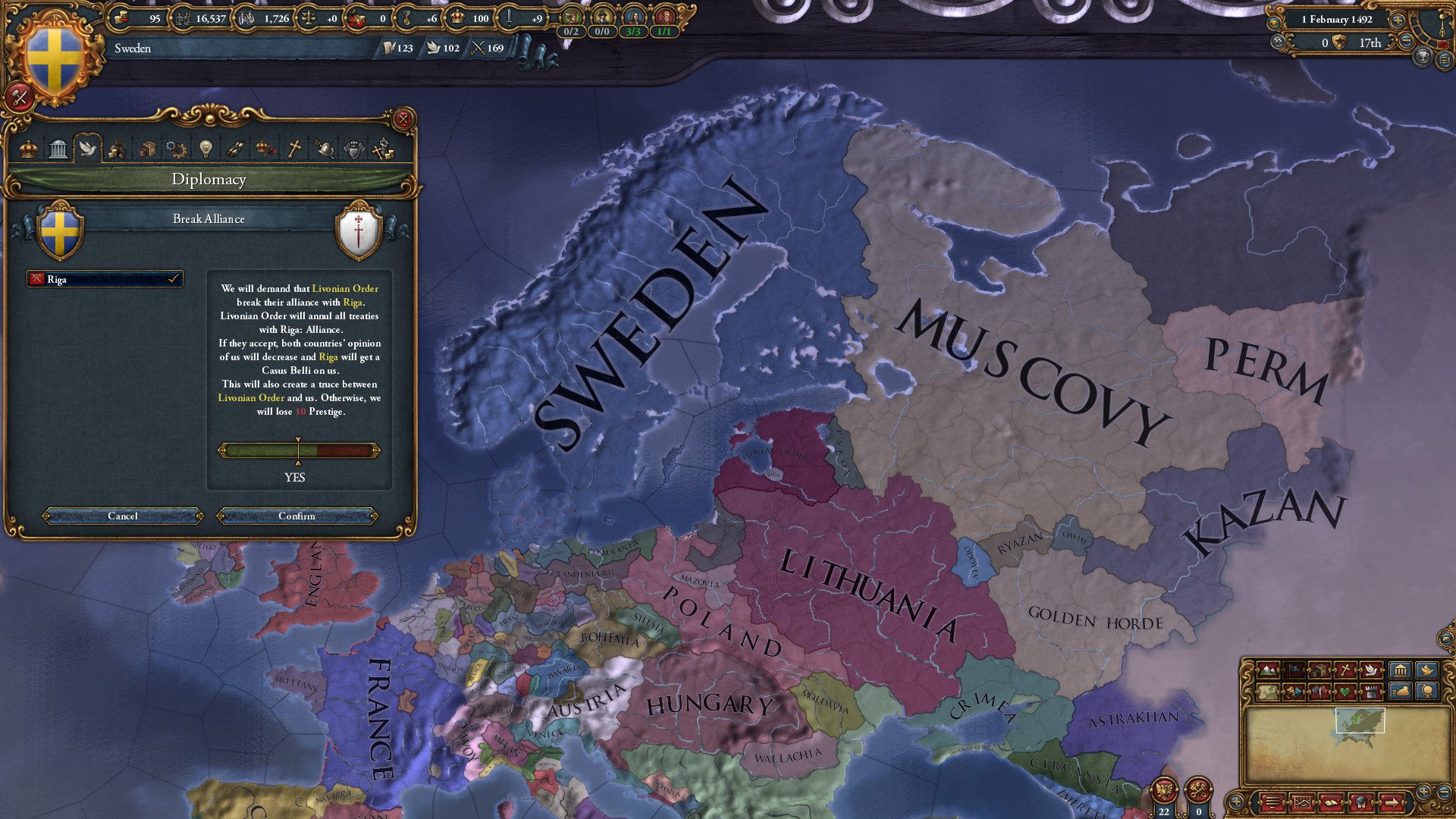
Cultural and Religious Influences
In Europa Universalis IV, the story goes beyond battles and politics. Culture and religion play a big role in how things change. Different beliefs, new ideas, and traditions shape each nation’s future. The “Rights of Man” expansion brings this to light. It helps players manage religious issues and adapt to cultural changes. Faith can also be a tool to reach goals.
To thrive, players need to understand these forces. Religion and culture can affect the country’s peace and international dealings under the auspices of the Supreme Being. Being aware of them is vital for a nation’s journey in a world that often faces division. Let’s see how “Rights of Man” highlights these important points.
The Reformation and Religious Wars
The Reformation began when Martin Luther challenged the power of the Catholic Church. This started a big change in religion across Europe. The rise of Protestantism focused on individual faith and scripture. As a result, it broke the religious unity there and led to many violent conflicts, changing the political scene. “Rights of Man” addresses this chaotic time. It brings the Reformation and its effects into the game.
Players now face the challenge of new Protestant beliefs. Each one has different traits and impacts on their nations. Balancing religious unity, handling the growth of religious minorities, and maintaining good ties between faiths are key parts of the game. Will you accept the Reformation and its possible rewards, even if it might cause conflict with Catholic neighbors? Or will you stick to the old faith and the Church’s authority as your rivals adopt new ideas?
The expansion adds new events, choices, and features that show the struggles of this time. Religious wars can start due to zealous leaders or the persecution of minorities. These can lead to serious damage, changing borders and collapsing empires. Knowing the details of religious diplomacy and the pros and cons of different beliefs, along with strategic religious policies, is important in managing this tricky situation.
Cultural Dynamics and Their Impact on Diplomacy
Culture is linked with language, customs, and shared history. It plays a big role in shaping how countries interact. Nations with similar cultures find it easier to make allies, trade, and stay peaceful. On the other hand, cultural differences can cause distrust, confusion, and even conflict. The “Rights of Man” expansion understands this. It brings cultural factors into its systems and offers a deeper view of international relations.
Players must think about culture when making allies, doing diplomacy, and going to war. Conquering a place with a different culture can give you valuable resources, but it might also lead to problems like unrest or rebellion. The “Rights of Man” expansion introduces new ways to handle culture. You can promote religious tolerance, invest in infrastructure, and move people to help blend cultures.
This expansion also allows for better interactions with countries that have similar cultures. Other nations are more likely to respond positively to diplomacy if they share a cultural background. Trade also benefits when there’s a cultural exchange along with goods and services. To succeed in diplomacy in Europa Universalis IV, it is key to understand these cultural aspects, use shared backgrounds in your favor, and be sensitive when dealing with cultural differences.
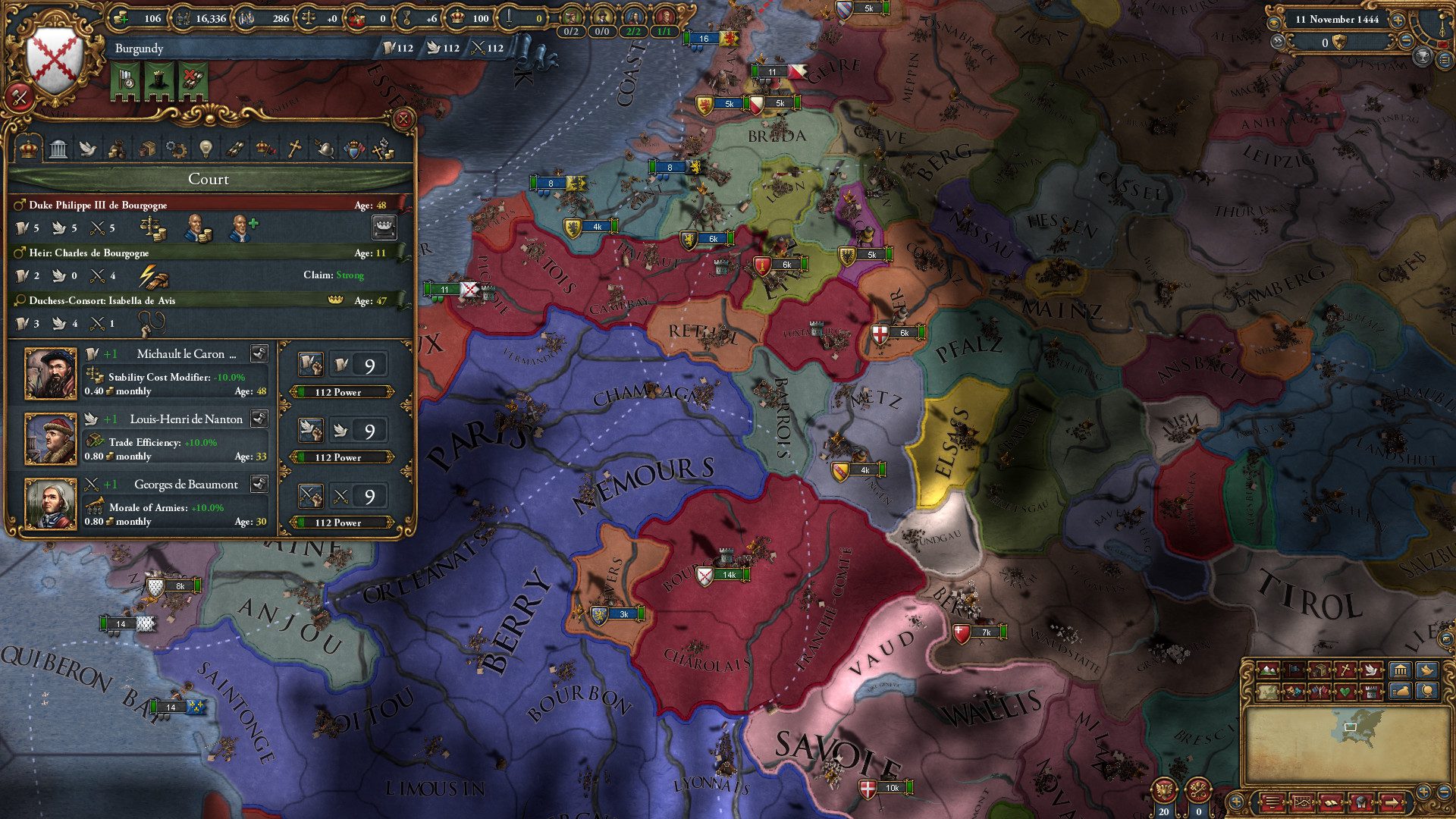
Conclusion
In conclusion, understanding the Rights of Man expansion in Europa Universalis IV makes the game deeper and more interesting. It offers new diplomatic choices, historical figures, technology, and cultural effects. Players can dive into a rich experience. They can manage great powers and explore global politics, which adds to the game’s strategy. The Rights of Man expansion brings new ways to play while showing the details of historical events. This makes every playthrough special and exciting. If you want a thrilling historical strategy game, you should look into the Rights of Man expansion.
Embark on your journey through history with the Rights of Man expansion today!
Frequently Asked Questions
What Are the Main Features of the Rights of Man Expansion?
The “Rights of Man” expansion upgrades Europa Universalis IV. It adds important features that include ruler personalities to improve strategy. There are improved Great Power mechanics that make diplomacy more meaningful. It also includes institutional propagation for better historical accuracy. Plus, there are new diplomatic options to make gameplay more engaging.
How Do Great Powers Influence Gameplay?
Great Powers in “Rights of Man” significantly affect the game. They shape how countries interact and change the balance of power. Players must adjust their strategies as the actions and choices of these Powers influence world events.
Can You Play as Any Nation, and How Does It Affect the Game?
In “Rights of Man,” you can choose to play as any nation. Each nation has its own unique gameplay. You will face different historical figures and specific challenges. This means you have to change your strategies and decisions to do well in different global situations.
